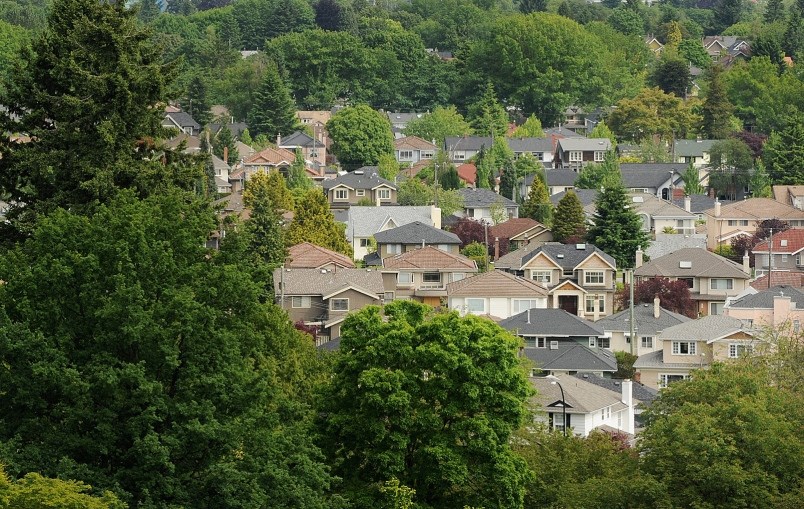The next two years in B.C. residential real estate will continue to see lower sales and higher inventories of homes available for purchase than in recent years, according to a forecast released November 6 by the Canada Mortgage and Housing Corporation (CMHC).
This will cause the average home price across the province to “hold steady” over the next two years, said the federal housing agency.
The CMHC said in its report, “Shifting market conditions across B.C.’s large urban centres is resulting in movement back towards balanced or even buyers’ market conditions in some cases, which is beginning to flatten price growth or, in some areas, result in price declines.
“Overall, we anticipate MLS® sales to trough in 2018 and see some recovery in 2019-20 while MLS® average prices will see a relatively flat growth profile with some risk of decline as demand and supply find a new balance.”
CMHC expects MLS resales across B.C. to drop from 103,759 units in 2017 to between 76,600 and 83,400 sales this year. Sales are then expect to increase somewhat in 2019 to between 79,100 and 87,900 units, and then in 2020 to range between 81,500 and 92,500 sales. They are not expected to return to the 100,000 mark seen in 2016 and 2017 in the next few years.
The agency is forecasting the average B.C. MLS home sale price to hit between $683K and $749K this year (2017 average sale price was $709,597). It is then expected to range from between $681,800 and $756,200 in 2019, and then hit somewhere between $675,400 and $758,600 in 2020.
The CMHC added in its report, “Housing starts activity in British Columbia should moderate as economic and population growth slows.”
It said that one of the main reasons for decelarating price growth was rising interest rates and stricter mortgage qualification rules.��“Rising mortgage rates since May 2017 and stricter borrowing requirements are also having an impact on potential home buyers through two channels; 1) rising rates increase the carrying cost of holding a mortgage and; 2) rising rates have an impact on borrowing capacity.”
The agency also predicted the next two years for the rental market in the province. It said, “Rental market conditions across B.C. are anticipated to loosen as a result of slower growth in demand and a significant amount of new rental units set to enter the market. However, demand for rental is anticipated to remain fairly robust and result in the apartment vacancy rate for the province increasing gradually through to 2020. Meanwhile, average rents for purpose built apartments are anticipated to continue to see increases stronger than inflation in both 2019 and 2020.”
��




